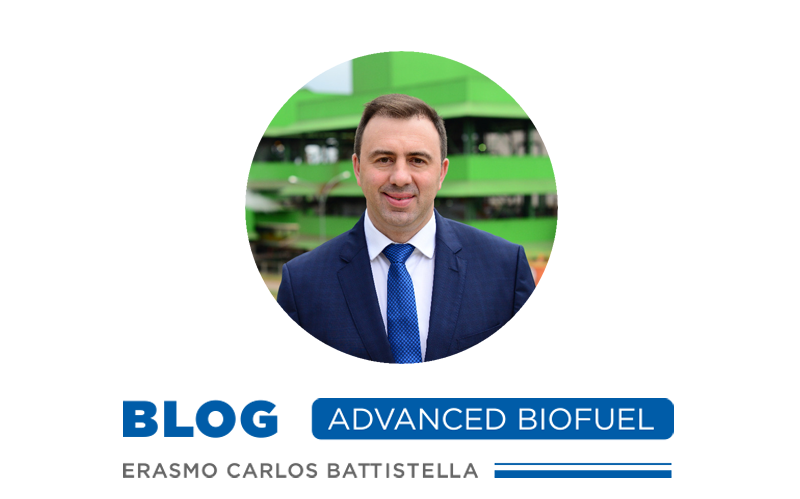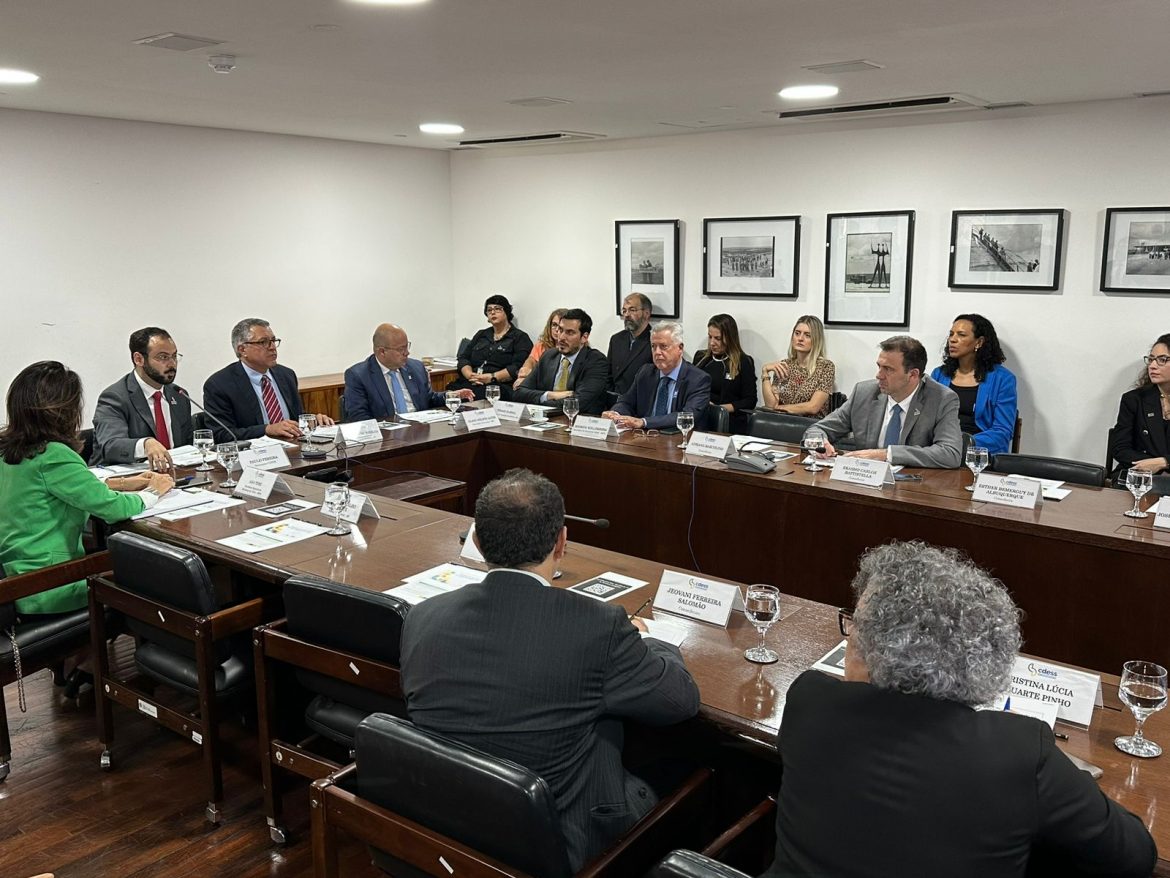As a guest Counselor of the Council for Sustainable Social Economic Development in Brazil, I took the liberty of presenting, at the first meeting of the Energy Transition Working Group, this Thursday (13/07), a proposal of 10 actions to compose a National Energy Transition Plan with the target until 2050 (PNTE 2050). The goal is for this to be a major investment platform for this strategic sector by 2050.
The proposals involve actions directed to the production, use and export of Biodiesel, Ethanol, Advanced Biofuels, Hydrogen, Biogas and Biomethane. It also addresses aspects involving decarbonization of the petrochemical sector, green financing, the National Biofuels Policy (RenovaBio) and the carbon market. The idea is that the PNTE 2050 will be shared with Mercosur member countries to stimulate the use of biofuels in the region in an integrated way.
The objective is that the macro and transversal program of energy transition will also be presented during the 28th UN Climate Change Conference (COP 28), with the aim of reinforcing the country’s leading position in this new moment in global energy, transforming the event into a platform for attracting investments for this strategic sector of the country.
All themes have high plurality and an important multidimensional aspect, which are conditions capable of promoting economic, sustainable development and with positive impacts on the environment. Biofuels and low-carbon fuels are a market opportunity with high technical maturity and ready to be introduced with low transition cost compared to electric vehicles, without requiring the anticipation of investments and forcing a fleet renewal.
In addition to having an already installed production capacity, biofuels use the same distribution, logistics and tanking infrastructures that move fossil fuels. Biofuels are a competitive solution ready for use and to promote the energy transition and decarbonization.
I offered this agenda to the working group to overcome in the short term the challenges of the energy transition, while benefiting the country and its society in sustainable development, with health, protection of the environment and economic and employment growth.
We live in an alarming point on the planet, with the record of constant records of average temperatures and experts estimate that this indicator can be surpassed more times later this year. The alert from the United Nations World Meteorological Organization indicates that there is a 66% chance that the annual average of warming will exceed 1.5 °C between 2023 and 2027, a limit identified as safe in the Paris Agreement.
The energy transition is more than a work plan. It depends on the sense of urgency of an entire society for a real understanding of the extent of the impacts of climate change. There is time for change, but it is a scarce resource.
Brazil is recognized as a green global power and bioenergy plays an important role in the short, medium and long term. Quality energy sources, environmentally sustainable and that promote the reduction in greenhouse gas emissions are opportunities for the development of the country.
We are an example of a clean energy matrix with options to increase economic activity, adding value to its large agricultural production and still promoting its expansion in a completely sustainable way, reducing greenhouse gas emissions and generating income and quality of life for the population.
Check out the proposals:
10 PROPOSALS FOR THE NATIONAL ENERGY TRANSITION PLAN – PNTE 2050
BIODIESEL
1. Enhance the production and export of biodiesel, expanding the blending mandate and taking advantage of the installed capacity and the gains of immediate decarbonization in large urban centers.
- Comply with the decision to expand and reach the B15 mixture;
- Work in an integrated manner with the production chain to promote the adoption of a new schedule of increases in the mixture that leads to the adoption of B20, with well-defined milestones, which guarantee legal certainty to investors, the quality of the product offered within the most demanding international standards, with greater value addition to the entire agribusiness production chain and with the generation of better paid jobs in regions of the interior of the country;
- As a matter of urgency, reassess the opening of the Brazilian biodiesel market to imports, ensuring the isonomy of Brazilian conditions, considering the respect for quality criteria and commercial parameters, so that the domestic market does not suffer from dumping practices and privileges in relation to our product;
- As a consequence of the increased use of biodiesel, the country will expand the supply of bran for the production chains of animal proteins;
- Estimates also indicate that each percentage point more in the mixture promotes the inclusion of more than 7,700 families of family agriculture in the National Program for the Production and Use of Biodiesel (PNPB).
ETHANOL
2.Strengthen and expand the production of Ethanol and Ethanol of second generation from new raw materials and their applications as inputs in petrochemical sectors and for the production of hydrogen
- Expand the mandatory blending of anhydrous ethanol to E30 and encourage its export;
- Increase the production, use and export of certified second generation ethanol (2G ethanol);
- Brazil already has a program that is an example for the world, with its sugarcane ethanol, but that should be expanded, with the use of other raw materials with the processing of cereals (corn, wheat, triticale, rice, sorghum, among others).
RENOVABIO AND CARBON MARKET
3. Strengthen and internationalize the National Biofuels Policy (RenovaBio) and create mechanisms for obligated parties to benefit from the acquisition and fulfillment of decarbonization goals.Expand the annual national decarbonization targets of RenovaBio to encourage the increase of the production and participation of biofuels in the country’s transport energy matrix;
The program allows the purchase of Decarbonization Credits (CBIO) and our proposal is that it has the possibility of its commercialization in the international market;
Fuel distributors, who are the obligated party to purchase the CBIO and who fully meet the targets, should have a benefit for contributing to the decarbonisation processIt is also important to accelerate the Bill (PL) 412/2022, which aims to regulate the Brazilian Emissions Reduction Market (MBRE). The proposal contemplates the legal certainty of all members of the carbon credit market.
ADVANCED BIOFUELS
4. Approval of a Bill that provides for the promotion of Sustainable Low Carbon Mobility, the National Sustainable Aviation Fuel Program (ProBioQAV), the National Green Diesel Program (PNDV) and the legal framework of Carbon Dioxide Capture and Storage.
- The initiatives will pave the way to attract investment in the country’s production of HVO (Hydrotreated Vegetable Oil) and Sustainable Aviation Fuel (SAF, from Sustainable Aviation Fuel, or also known as SPK, from Synthetic Paraffinic Kerosine).
- Thus, Green Diesel (HVO), because it is drop-in and goes straight to the tank, can replace 100% fossil diesel, or be applied in an 80/20 ratio with biodiesel, characterizing itself as an effective solution to the problem of decarbonization of large urban centers.
- In the case of SAF, the definition of the regulatory framework will allow companies in the airline industry to comply with the definitions of CORSIA (Carbon Offsetting and Reduction Scheme for International Aviation) with a mandatory regime for the use of biokerosene blend from 2027.
- The Future Fuel Bill is also underway and is important to establish a framework for sustainable low-carbon mobility with actions to decarbonise different modes of transport such as aviation.
HYDROGEN
5. Unify forces between the Legislative and the Executive to create a Public Policy that makes the country a major sustainable producer and exporter of hydrogen
- The production of hydrogen by ethanol is an important technological route that should be promoted because it presents transport and logistics conditions;
- Bill No. 725/2022 under discussion intends to regulate the insertion of hydrogen as an energy source in Brazil and establishes parameters to encourage the use of sustainable hydrogen.
- Brazil is already receiving a large volume of investment in projects in this area.
DECARBONIZATION OF THE PETROCHEMICAL SECTOR
6. Propose an incentive program for the decarbonization of the petrochemical sector in an integrated manner to the development of the clean bioenergy sector.
- Major global producers in the petrochemical sector already have targets to increase the use of raw materials from renewable sources and biofuels.
- Ethanol, bionaphtha and biogas must be integrated into the production process of the green petrochemical sector.
BIOGAS AND BIOMETHANE
7. Definition of a Public Policy for the production and use of biogas and biomethane.
- Promote its integrated production and use of biogas to the green petrochemical sector;
- Encourage the production of biogas for use in the transport sector;
- Insert this agenda in the debates of the Working Group of the Gas to Employ Program.
GREEN FINANCING
8. Promote, through the Ministry of Finance, a program for the Brazilian financial system to progressively increase public and private financial mechanisms (credit operations, bonds, funds, bonds, debentures) directed to low-carbon projects with proven sustainability.
- Sustainable finance plays an important role in channelling resources into social, environmental and governance development projects (as part of the ESG concept). They ensure the fulfillment of decarbonization goals and, consequently, mitigate the risks of economic disruptions, such as environmental catastrophes and losses in agricultural production resulting from global warming.
REGIONAL LEADERSHIP
9. Brazil can take the opportunity to be in the presidency of Mercosur to lead the promotion of Public Policies that stimulate the use of biofuels for the energy transition.
- In the negotiation of the Mercosur agreement with the European Union, it is necessary to defend the total exemption from taxation of renewable energies produced in the region and exported to the European continent;
- Create synergies and align regional regulatory strategies to increase the use of biofuels in the region, with emphasis on investments in FAS;
- Encourage the expansion of the use of ethanol, biodiesel, hydrogen, biogas, biomethane and green diesel (HVO);
- The representative entities of the biofuels sector in Argentina, Brazil, Colombia, Paraguay and Uruguay expressed a firm conviction that it is essential that all governments promote, in a comprehensive way, the energy transition strategy for the development of the sector, both for vehicular transport, as well as for air, river and sea transport;
- The Association of Biofuel Producers of Brazil (APROBIO) has formally joined the Pan American Coalition of Liquid Biofuels, an important forum to promote the production and sustainable consumption of biofuels.
COP 28
10. Brazil used its leading role in clean energy during the 28th UN Climate Change Conference (COP 28), to launch a macro and transversal energy transition program, with the aim of strengthening its position in this new moment in global energy, transforming the event into a platform to attract investments for this strategic sector of the country.

